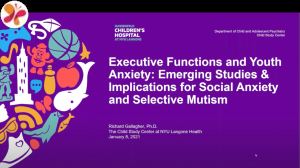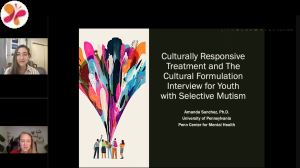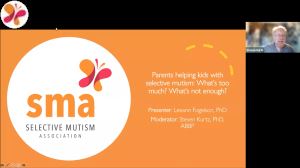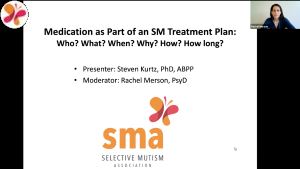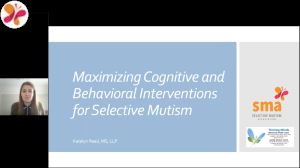The executive functions are seminal components in children’s development and adjustment. When thinking of child and adolescent disorders, most executive function investigations have focused on excessive behaviors such poor attention control, impulsivity, and aggression. However, the executive functions play a role in anxiety disorders as well.
Resources Categories: Families & Individuals
Webinar: Culturally Responsive Treatment and The Cultural Formulation Interview in Youth with Selective Mutism and Anxiety
This webinar will discuss the importance of emphasizing cultural context in our clinical work with youth and families. Then, the cultural formulation interview (CFI) will be described. How to gather culturally relevant information to incorporate into case conceptualization and treatment planning in the context of selective mutism and anxiety will be discussed.
Parents Helping Kids with SM: What’s Too Much? What’s Not Enough?
For loving caregivers, it is challenging to see your child in distress. It can be difficult to grapple with the fact that ‘rescuing’ a child from moments of distress can actually do more harm than good. When we make it too easy for an anxious child with selective mutism not to talk, we inadvertently reinforce their habit of avoidance.
Medications as Part of a Selective Mutism Treatment Plan: Who? What? When? Why? How? How long?
The decision to try adding medicine to a treatment plan for your child with Selective Mutism is often a very agonizing one. No parent ever wakes up and says, “Gee, I’d love to give my young child a psychotropic medication today.” Rather you wrestle with the decision. Do we need it? Will there be side effects? Will it hurt my child in the long run? Will it change their personality? How long will they need to be on it?
Maximizing Cognitive and Behavioral Interventions for Selective Mutism
In this webinar, Katelyn Reed, MS, LLP will discuss how to maximize cognitive and behavioral interventions for use with clients with Selective Mutism. A particular emphasis will be placed on the use of exposure therapy and the specific skills that are used to facilitate speech. This program is intended for both parents and professionals.
